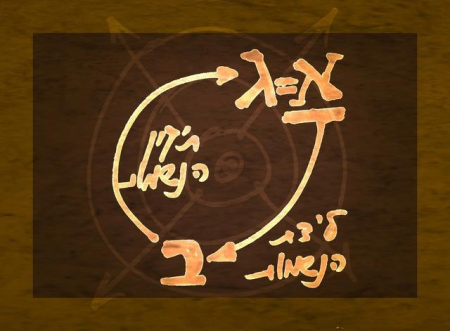Glossary of Terms Used in the Balak Weekly Torah Portion
- King
- Messengers
- Curse
- Mare
- Angel
- Blocked Road
- Deviating from the Way
- Oath
- The Creator Plays with the Righteous in the Garden of Eden
The force that governs a degree.
The forces by which actions are performed on a certain degree, a certain state of a person. A person’s state is called a “degree.” The one who governs each degree is called the “king of the degree,” which is usually the Sefira (singular of Sefirot) we call Keter (crown). The messengers are forces acting within that degree. By and large it is the eight Sefirot from Hochma to Yesod.
The egoistic force that works in order to receive, which governs a person, and for whom it acts as a curse.
Our substance, the donkey’s female. It is the actual will to receive that feels and distinguishes between the forces within us.
The force that acts in a degree and is directed by the ruler, the Keter, the king.
The way by which one is going to correct one’s will to receive, with the intention to reach the next degree, greater Dvekut (adhesion), greater clarity of vision in spirituality, but he cannot reach it. That is, in this manner it is impossible to advance. A person finds that to reach the next degree, one needs a new substance.
Advancing on the path toward bestowal when suddenly something goes awry and a person discovers he has strayed from the path. However, this discovery is already a correction in itself.
How is the discovery of the deviation a correction?
By discovering the deviation, a person knows how to continue. Our effort toward the goal is like a guided missile. The missile must constantly detect its deviations and correct them. If it moves in a straight line it cannot hit its target. It is the same for us: we cannot move in one straight line toward the goal. Rather, we must constantly examine our deviations, and only through them. This may seem like a contradiction, but only in this way do we advance toward the goal.
When the will to receive, Malchut, connects to Keter on a single axis and is ready to follow Keter’s will above reason.
The Creator Plays with the Righteous in the Garden of Eden
“Once the Creator smelled and played with them, and with all their secrets of wisdom, He appears before them and they see that pleasantness of the Creator. Then they all rejoice in great joy until their brightness and light spread. From that spreading, their brightness and light of their joy bear fruit and buds in the world, which are the souls, and those fruits come under the wings of Divinity until the proper time.”
Zohar for All, New Zohar, Balak, item 6
We are the broken souls in the worlds of Beria, Yetzira, and Assiya in this world. We must rise to the state of Malchut of Atzilut, to that Divinity—that correction—by connecting our souls in unity, in mutual guarantee. Along the way we will conquer the Sinai Desert and the Land of Israel.

